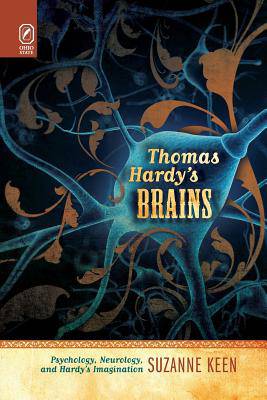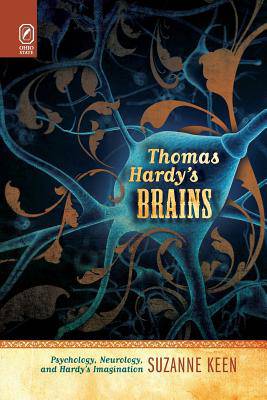
Bedankt voor het vertrouwen het afgelopen jaar! Om jou te bedanken bieden we GRATIS verzending (in België) aan op alles gedurende de hele maand januari.
- Afhalen na 1 uur in een winkel met voorraad
- In januari gratis thuislevering in België
- Ruim aanbod met 7 miljoen producten
Bedankt voor het vertrouwen het afgelopen jaar! Om jou te bedanken bieden we GRATIS verzending (in België) aan op alles gedurende de hele maand januari.
- Afhalen na 1 uur in een winkel met voorraad
- In januari gratis thuislevering in België
- Ruim aanbod met 7 miljoen producten
Zoeken
€ 59,45
+ 118 punten
Omschrijving
The imagery of brains and nerves that Thomas Hardy employed in over a half century of writing amply demonstrates that he knew the psychology of his time. Thomas Hardy's Brains: Psychology, Neurology, and Hardy's Imagination reevaluates Hardy's representations of minds, the will, and consciousness (and nescience) in the context of Victorian brain science and Victorian medical neurology. Susanne Keen traces his reading from his early twenties until his old age in sources such as The Literary Notebooks, collections of reading notes made by Hardy from the 1860s onward. In showing how Hardy the reader informed Hardy the novelist and poet, she gives new insight into the unusual techniques Hardy used to represent fictional consciousness in his fiction and shows how the image schemas in his poetry embody his convictions. This study reveals how Hardy made sense of diverse sources of an affective human psychology, a discipline that expanded significantly during Hardy's working life. From the 1870s to the turn of the twentieth century, the tools and techniques for studying the structures and function of the nervous system developed rapidly. Simultaneously, Hardy moved steadily toward realizing a more physiologically accurate rendering of brains and nerves.
Specificaties
Betrokkenen
- Auteur(s):
- Uitgeverij:
Inhoud
- Aantal bladzijden:
- 254
- Taal:
- Engels
- Reeks:
Eigenschappen
- Productcode (EAN):
- 9780814252758
- Verschijningsdatum:
- 1/06/2016
- Uitvoering:
- Paperback
- Formaat:
- Trade paperback (VS)
- Afmetingen:
- 152 mm x 229 mm
- Gewicht:
- 376 g

Alleen bij Standaard Boekhandel
+ 118 punten op je klantenkaart van Standaard Boekhandel
Beoordelingen
We publiceren alleen reviews die voldoen aan de voorwaarden voor reviews. Bekijk onze voorwaarden voor reviews.









